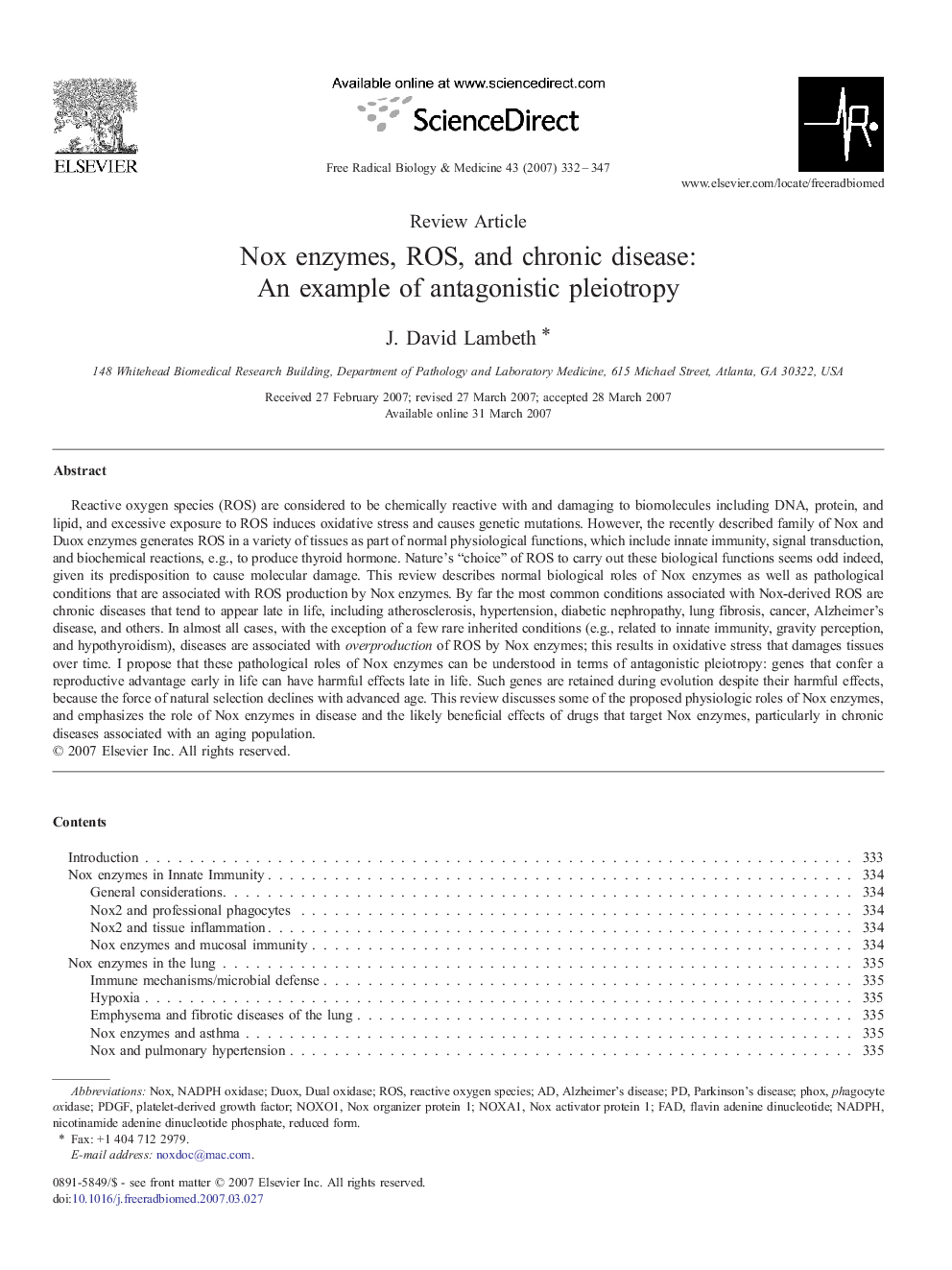| Article ID | Journal | Published Year | Pages | File Type |
|---|---|---|---|---|
| 1911083 | Free Radical Biology and Medicine | 2007 | 16 Pages |
Reactive oxygen species (ROS) are considered to be chemically reactive with and damaging to biomolecules including DNA, protein, and lipid, and excessive exposure to ROS induces oxidative stress and causes genetic mutations. However, the recently described family of Nox and Duox enzymes generates ROS in a variety of tissues as part of normal physiological functions, which include innate immunity, signal transduction, and biochemical reactions, e.g., to produce thyroid hormone. Nature's “choice” of ROS to carry out these biological functions seems odd indeed, given its predisposition to cause molecular damage. This review describes normal biological roles of Nox enzymes as well as pathological conditions that are associated with ROS production by Nox enzymes. By far the most common conditions associated with Nox-derived ROS are chronic diseases that tend to appear late in life, including atherosclerosis, hypertension, diabetic nephropathy, lung fibrosis, cancer, Alzheimer's disease, and others. In almost all cases, with the exception of a few rare inherited conditions (e.g., related to innate immunity, gravity perception, and hypothyroidism), diseases are associated with overproduction of ROS by Nox enzymes; this results in oxidative stress that damages tissues over time. I propose that these pathological roles of Nox enzymes can be understood in terms of antagonistic pleiotropy: genes that confer a reproductive advantage early in life can have harmful effects late in life. Such genes are retained during evolution despite their harmful effects, because the force of natural selection declines with advanced age. This review discusses some of the proposed physiologic roles of Nox enzymes, and emphasizes the role of Nox enzymes in disease and the likely beneficial effects of drugs that target Nox enzymes, particularly in chronic diseases associated with an aging population.
